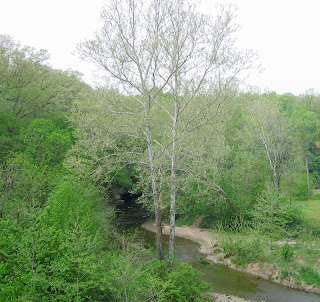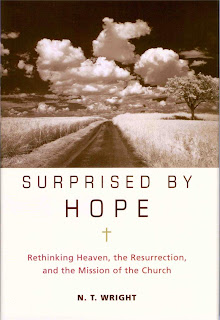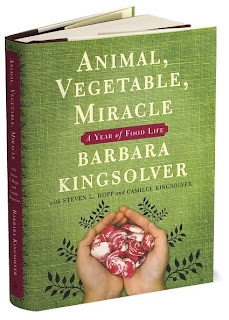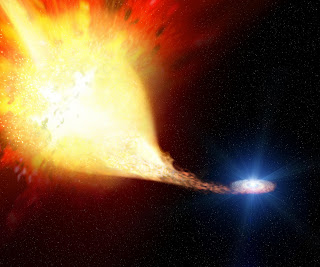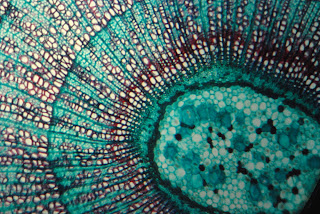Why are so many Christians afraid of science?
So many Christians get incredibly defensive and angry when it comes to debates and discussions about science, particularly when our origin is the topic under scrutiny. People will argue fiercely and loudly against theories such as evolution or big bang cosmology.
Some would even go so far as to state that Christians cannot also be scientists.
Why do we get so defensive and angry?
Fear.
While most would not admit it, many are, deep down inside, afraid that if such theories are true than their God does not exist. They fear that God is unable to defend Himself and so they get angry in order to drive out their fear.
For you did not receive a spirit that makes you a slave again to fear, but you received the Spirit of sonship.
I have fear too.
I am afraid that this divide between Christians and science is driving people away from our faith rather than drawing them in.
How can we possibly think that science could destroy God? How can we believe that science could ever come up with a truth that would cause God to cease to exist?
We worship and serve God Who is Truth and science cannot help but point to Him.
Perhaps part of the trouble is that Christians have mistaken the purpose of science.
Science tries to figure out how things work. Science does not give ultimate explanation for the origin and existence of the universe or answer questions concerning the purpose of the universe or of our existence.
What if evolution is true? What if the big bang theory is true? Does that take God out of the picture at all?
God created our universe. The Bible is clear on that point.
As Richard T. Wright writes in Biology Through the Eyes of Faith:
Whether you believe that His gifts were bestowed at the outset of creation, or periodically over time, or all at once recently, you should see design in what He has done. What we see doesn’t prove His existence, but it does point people in the right direction, and for Christians, what we see and learn should cause us to thank Him and give Him the glory for such a wonderful creation.
Why should we fear science when science can give us more and more insight into how beautiful and complex is God’s design? Science doesn’t deny God, science glorifies God!
God reveals Himself through His Word:
All Scripture is God-breathed and is useful for teaching…
God also reveals Himself through His created world:
For since the creation of the world God’s invisible qualities – His eternal power and divine nature – have been clearly seen, being understood from what has been made, so that men are without excuse.
Why do we try to throw out one of His revelations?
At the end of one of his papers, the biologist David Wilcox says this:
In our speculations, we must be limited by God’s self-revelations – both by Scripture and in His created world. As we seek to be guided by these two sources of truth, let us humbly acknowledge that our interpretations of both sources of knowledge are worldview guided and fallible. We will always need to be guided – and corrected – by the Spirit of Truth, in science or in theology. And when we get home…won’t we have a good laugh at ourselves?!
Perhaps we should trust God. Trust that He is able to defend Himself, trust that He is Truth and that science can never knock Him off His throne.
Whether you believe that the earth is young or old, whether you believe that we humans were created in one day or over billions of years through evolution, when we have debates and discussions with other Christians and with non-Christians, please remember that the most important thing to God is not our origin but that we love Him and love each other.
It is not wrong to have your opinion, to study science and debate with others about various issues, but don’t fear those who disagree–love them. In the end, our love and respect, our willingness to listen and prayerfully consider new ideas is a much stronger way to show Jesus to the world around us than attacking others or becoming defensive out of fear.
…But perfect love drives out fear…
As we think about how we love, may I end with one last thought from Wright’s book?
Over the years, I have realized that even though it is necessary to look at these origins issues and problems, the more important problems are those that are facing us today as we try to learn how to take care of the creation and how best to use its gifts. (If God were to ask us a question about His Creation,) would He ask us what we thought about how He made the world, or would He ask us what we did with it?
Art credits: DNA photo by Tomislav Alajbeg; photos of Eagle Nebula and Supernova from NASA; microscopic view of a lime tree by Kriss Szkurlatowski


